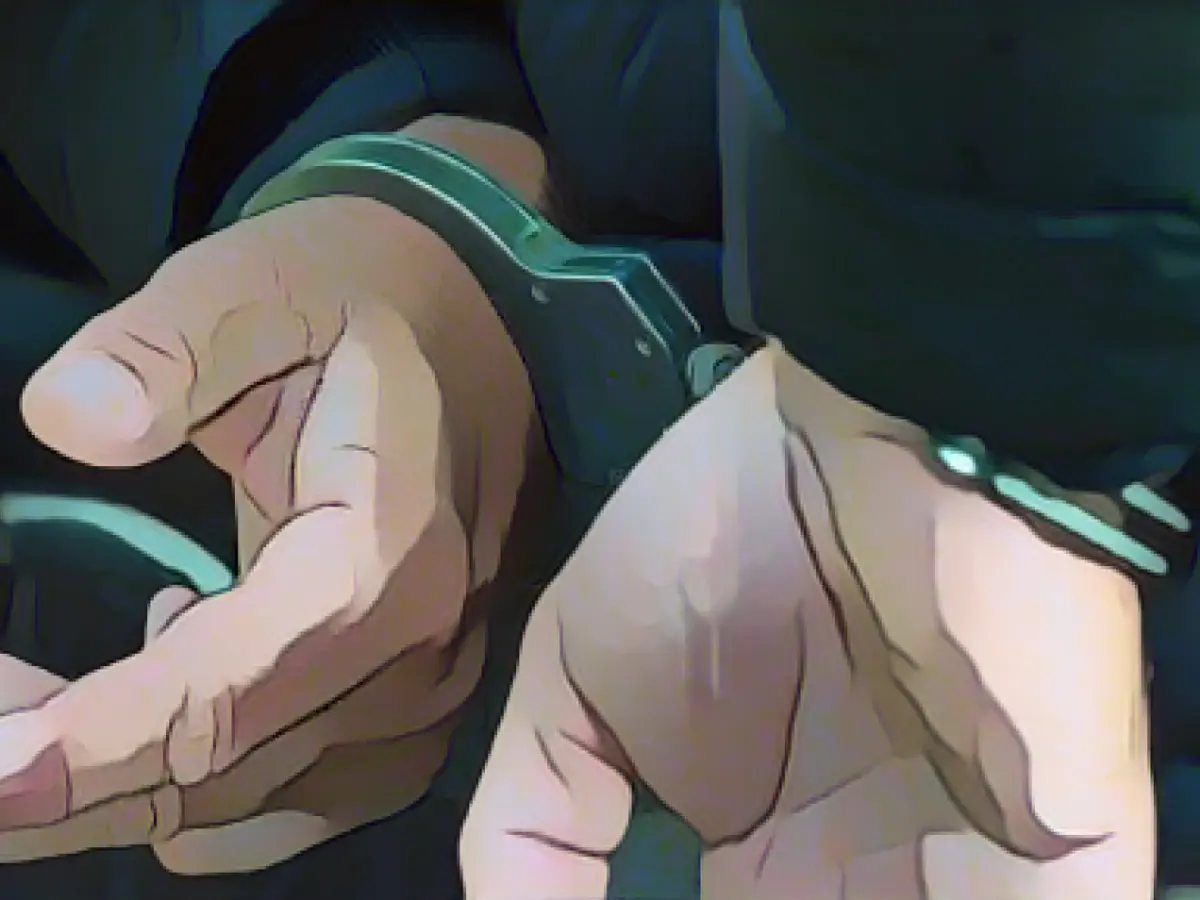Turn of the year - Many suspected New Year's Eve rioters free
After riots and 390 provisional arrests on New Year's Eve in Berlin, almost all suspected troublemakers and rioters have been released. However, one man is in custody. This was announced by the public prosecutor's office and police on Tuesday afternoon.
A police spokesman said on Tuesday that the identities of most of the arrested suspects had been established directly on site or at a nearby police station during the night and they had then been released. The newspaper "B.Z." had reported.
The security authorities later announced that three arrest warrants had been issued. In two of these cases, the arrest was spared. However, a 23-year-old was remanded in custody for violating the Weapons Act.
The police also explained that it is normal for suspects to be released for misdemeanors such as firing alarm guns. Even less serious offenses such as dangerous handling of fireworks, bodily harm and resisting the police are not usually grounds for prolonged police custody or pre-trial detention, the spokesperson said.
After New Year's Eve, the Berlin police announced that they had provisionally arrested 390 people during the night and initiated 720 criminal investigations, mainly for arson, violations of the Explosives Act, assaulting and resisting police officers.
The figures, which are not yet final, were also significantly higher than in previous years because many more police officers were deployed to intervene very quickly and very consistently in order to immediately contain major riots and attacks, as in the previous year.
However, there were also thousands of deployments of paramedics and police officers throughout Germany, with around 100 officers injured according to an initial estimate. The police in North Rhine-Westphalia counted 1186 people sent off.
Meanwhile, the usual debate about banning fireworks, police operations and prevention flared up. Police unions, fire departments and the Greens are calling for a ban on private fireworks, the CDU rejects it and wants a strong state, while pyro associations and the left are calling for more social workers instead of more police officers.
The police union (GdP) advocated a ban on fireworks and more video surveillance. More police would provide more security, but a deployment as large as the one in Berlin is not always possible, said GdP chairman Jochen Kopelke on the radio station WDR5. What is needed is a "smart discussion about strengthening the security authorities" with modern technology, a ban on fireworks and a reflection on society.
Berlin's governing mayor Kai Wegner (CDU) once again rejected the ban on private fireworks. This was the wrong approach and would not solve the problems, Wegner said on RTL/ntv. "I don't want to punish 99 percent of Berliners who celebrate New Year's Eve peacefully because a small minority think they can do what they want." At the same time, he called for the perpetrators of violence to be consistently condemned.
The district mayor of Berlin-Neukölln, Martin Hikel (SPD), spoke out in favor of better prospects and more social support for young people. The discussion about a ban on firecrackers should be held throughout Germany, he said.
The Federal Association of Pyrotechnics praised the privately permitted fireworks and emphasized: "Serious injuries or even deaths have nothing to do with New Year's Eve fireworks. They are caused by illegal pyrotechnics and homemade laboratories." Instead of sending out a "militarized and equally violent police force", social work and prevention are needed.
The Berlin Greens had already suggested a ban on private fireworks on New Year's Eve, stating that "women and children have a right to a safe New Year's Eve". The Left Party spoke of "social tensions" and repression by the police. The AfD criticized that New Year's Eve was becoming "the new May Day" and that it was about "flawed immigration policy" and a problem for society as a whole.
The German Fire Brigade Association emphasized that police protection concepts had prevented the worst in many places. Nevertheless, firefighters had been attacked and in some cases injured. The German judiciary is expected to "make full use of the legal possibilities in the event of a conviction".
Read also:
- A clan member is punished here
- Traffic lawyer warns: Don't talk to the police!
- Will he be convicted as Jutta's murderer after 37 years?
- He also wanted to kill his cousin
- Despite the public prosecutor's office and police announcing one man's custody, many suspected New Year's Eve rioters who were arrested in Berlin have been released, as stated by a police spokesman.
- The high number of arrests and criminal investigations initiated during New Year's Eve in Berlin by the police, amounting to 390 individuals and 720 cases, are a testament to the increased police presence aiming to control criminality such as arson, violations of the Explosives Act, assaulting, and resisting police officers.
- The 'CDU' party, represented by Berlin's governing mayor Kai Wegner, rejects a proposed ban on fireworks after New Year's Eve, arguing that it would unfairly punish the majority who celebrate peacefully.
- The public prosecutor's office issued arrest warrants for three individuals following the New Year's Eve riots in Berlin, but two of the suspects were spared the arrest, while a 23-year-old was remanded in custody for violating the Weapons Act.
- Kai Wegner, the CDU mayor of Berlin, advocated for condemning the perpetrators of violence, highlighting that they should not distract from the peacefully celebrating majority during the turn of the year in Germany.
Source: www.stern.de








